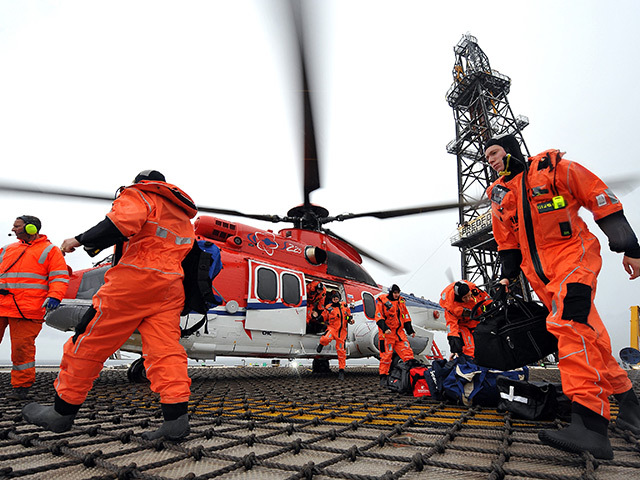
An Aberdeen academic has said three week, equal time rotas will always divide opinion.
John Scrimgeour, an emeritus energy advisor at Aberdeen University, said three weeks on, three weeks off (3:3) rotas could improve North Sea safety.
Mr Scrimgeour said 3:3 meant fewer helicopter flights, which have been the cause of many oil industry deaths this century.
But he said spending three weeks offshore at a time would never suit some individuals and their families.
“I personally think 3:3 is safer, and that there’ll be cost reductions in helicopter travel,” Mr Scrimgeour said.
“Travelling by helicopter is probably the riskiest thing you’ll do in the North Sea.
“It’s still relatively safe, but statistically nearly all the fatalities in this century have been helicopter accidents, despite all the work on making them safer.”
Crew on Total’s Alwyn, Dunbar and Elgin platforms recently voted to move to 3:3, in exchange for a 15% pay increase.
But Shell and Apache have both announced plans to move workers back to a 2:3 system.
Repsol Sinopec Resources UK is conducting its own review of offshore schedules.
Mr Scrimgeour said: “The unions have polled their members and some of them are concerned about how workers’ stamina stands up for a three week session.
“Money is only money. If there are problems doing 3:3, then those will continue.
“Crew have set up their family lives to account for them being away for so many weeks.
“If that changes, there will be problems for some and not others.
“I expect that in time people will come to accept that.”
He added: “Obviously, the less time you spending offshore, the easier it is on you. But, generally, I think it depends on the individual.
“If you’ve got small kids at home, a three weeks away is a long time. It’ll put different stresses on different people, some negative, and some positive. It’ll be interesting to see the reaction of the staff.”
Recommended for you
